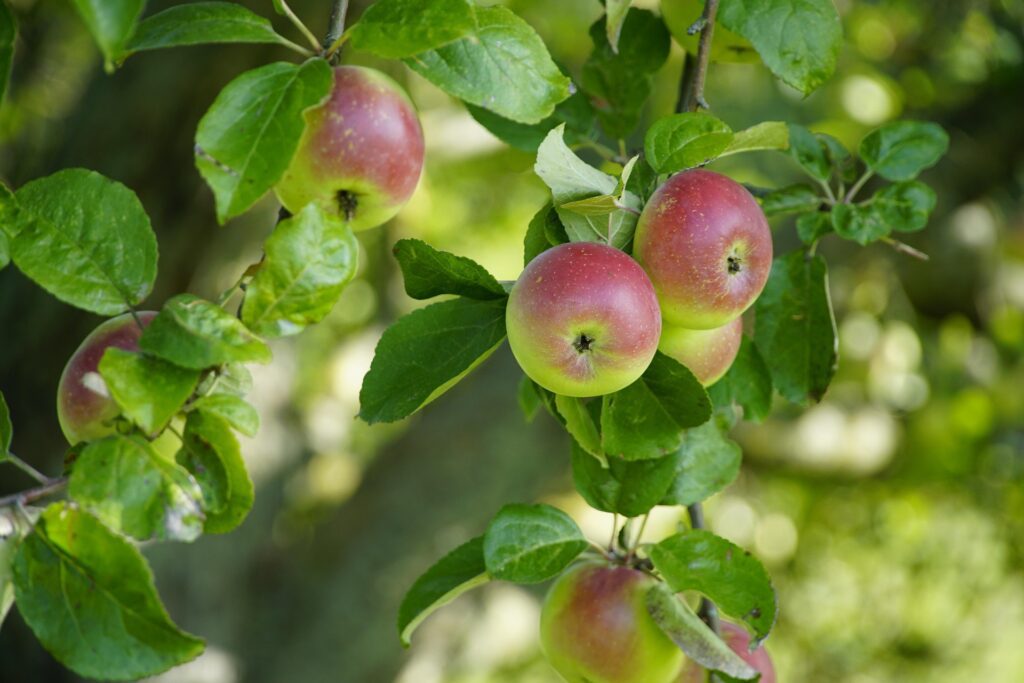Table of Contents
Introduction
Organic Farming Courses In recent years, organic farming has gained significant traction as a sustainable alternative to conventional agriculture. Defined by its commitment to environmentally friendly practices, organic farming emphasizes the use of natural inputs, biodiversity, and ecological balance.
This approach not only benefits the environment but also promotes healthier food options for consumers. As the demand for organic products continues to rise, so does the need for knowledgeable practitioners in this field.This is where organic farming courses come into play.
These educational programs equip individuals with essential skills and knowledge necessary for success in organic agriculture. In this blog, we will explore the significance of organic farming courses, the skills they impart, and the myriad of opportunities they create for personal and professional growth.

1: Understanding Organic Farming
Principles of Organic Agriculture
Organic farming is rooted in four fundamental principles that guide its practices:
- Health: Organic farming aims to sustain and enhance the health of soil, plants, animals, and humans. This holistic approach recognizes that all living systems are interconnected and that healthy ecosystems are vital for producing nutritious food.
- Ecology: Organic agriculture works with nature rather than against it. It emphasizes ecological balance, promoting biodiversity and natural pest control methods. By fostering a diverse ecosystem, organic farmers can create resilient agricultural systems that are less susceptible to pests and diseases.
- Fairness: The principle of fairness promotes equity in relationships among farmers, workers, and consumers. Organic farming encourages fair trade practices, ensuring that all stakeholders benefit from the agricultural process.
- Care: Organic farming emphasizes taking responsibility for future generations by practicing sustainable agriculture. This principle encourages farmers to consider the long-term impacts of their practices on the environment and society.Organic Farming Courses
Benefits of Organic Farming
Organic farming offers a multitude of benefits that extend beyond just producing food. These advantages encompass environmental, economic, and social aspects, contributing to a more sustainable and resilient agricultural system. Below is a detailed exploration of the key benefits of organic farming.
Environmental Benefits
. Improved Soil Health
Organic farming practices enhance soil health through methods such as crop rotation, cover cropping, and the use of organic fertilizers like compost. These practices improve soil structure, increase fertility, and promote microbial diversity.
Healthy soils are crucial for sustaining plant growth and ensuring long-term agricultural productivity. Organic methods also help retain moisture in the soil, reducing the need for irrigation and enhancing resilience to drought conditions24.
. Enhanced Biodiversity
Organic farms tend to support greater biodiversity compared to conventional farms. The prohibition of synthetic pesticides and fertilizers, combined with practices that promote diverse planting, leads to healthier ecosystems.
Studies have shown that organic farms can support up to 34% more plant, insect, and animal species than conventional farms3.This biodiversity is vital for pollination, pest control, and overall ecosystem stability.Organic Farming Courses
. Reduction in Pollution
By avoiding synthetic chemicals, organic farming significantly reduces pollution in both soil and water systems. The runoff from conventional farms often contains harmful pesticides and fertilizers that can contaminate waterways and harm aquatic life. Organic practices help keep our water supply clean by minimizing chemical runoff and promoting natural filtration processes through healthy soils35.Organic Farming Courses
. Lower Greenhouse Gas Emissions
Organic farming contributes to climate change mitigation by lowering greenhouse gas emissions. The use of synthetic fertilizers is a significant source of nitrous oxide emissions—a potent greenhouse gas
. Organic farming restricts these fertilizers and instead relies on natural alternatives that have a lower carbon footprint12. Additionally, practices such as reduced tillage and cover cropping enhance carbon sequestration in soils, further helping to combat climate change4.
. Conservation of Natural Resources
Organic farming emphasizes sustainable resource use by recycling nutrients and materials within the system. This approach leads to more efficient use of resources such as water and energy. Organic farms typically consume about 15% less energy per unit produced compared to conventional farms due to their reliance on natural inputs rather than fossil fuel-based products45.Organic Farming Courses
. Erosion Control
Organic farming methods reduce soil erosion by avoiding heavy tillage practices that are common in conventional agriculture. Techniques such as maintaining ground cover with crops or mulches protect the soil from erosion caused by wind and water. This not only preserves the topsoil but also maintains soil fertility over time26.Organic Farming Courses


Economic Benefits
. Access to Niche Markets
Organic products often command higher prices in the market due to increasing consumer demand for healthier and sustainably produced food. Farmers who transition to organic practices can tap into these niche markets, potentially leading to increased profitability26.
. Improved Livelihoods for Farmers
By participating in organic markets, farmers can improve their livelihoods through better prices for their products. This is particularly beneficial for small-scale farmers who may struggle under conventional systems dominated by large agribusinesses2. Additionally, organic farming can lead to job creation within local communities as demand for organic produce grows.Organic Farming Courses
. Resilience Against Market Fluctuations
Organic farming systems tend to be more resilient against market fluctuations due to their diverse production methods and lower reliance on external inputs (like synthetic fertilizers). This diversity helps stabilize income over time, making organic farmers less vulnerable to price drops in single crops or inputs45.Organic Farming Courses
Social Benefits
. Healthier Food Options
Organic farming provides consumers with access to food that is free from synthetic pesticides and fertilizers, which can have harmful effects on human health. Studies suggest that organic foods may contain higher levels of certain nutrients and antioxidants compared to conventionally grown produce23. By choosing organic products, consumers reduce their exposure to harmful chemicals.
. Safer Working Conditions
Farmers who practice organic agriculture often work in safer conditions due to the absence of toxic chemicals commonly used in conventional farming practices. This not only benefits the farmers but also contributes positively to the health of farmworkers and their families56.
. Community Engagement and Education
Organic farming encourages community involvement through initiatives like community-supported agriculture (CSA) programs, where consumers buy shares of local farms’ harvests directly from farmers. These programs foster connections between producers and consumers while promoting awareness about sustainable food systemsOrganic Farming Courses
2: Overview of Organic Farming Courses
Types of Courses Available
With the increasing interest in organic farming, a variety of educational options have emerged:
- Online Courses: These offer flexibility for learners who may not have access to in-person classes or prefer self-paced learning. Platforms like Coursera, edX, or specialized agricultural education sites provide comprehensive programs on organic farming principles.
- In-Person Workshops and Training Programs: Many agricultural colleges and local farms offer hands-on workshops that allow participants to learn directly from experienced farmers. These programs often include field trips and practical demonstrations.Organic Farming Courses
Course Content
Organic farming courses typically cover a wide range of topics essential for success in this field:
- Organic Farming Practices: Understanding how to grow crops without synthetic inputs is fundamental. Courses may delve into various techniques such as companion planting, crop rotation, and permaculture principles.
- Soil Health Management: Healthy soil is the foundation of successful organic farming. Participants learn about soil composition, nutrient cycling, composting techniques, and methods to enhance soil fertility naturally.
- Pest Control Methods Without Chemicals: Learning about integrated pest management (IPM) strategies is crucial for managing pests sustainably. Courses often cover natural pest deterrents, biological controls, and beneficial insects.
- Crop Rotation and Biodiversity Promotion: Exploring how diverse planting can improve resilience against pests and diseases is essential knowledge for organic farmers. Crop rotation helps prevent soil depletion and disrupts pest life cycles.Organic Farming Courses
3: Key Skills Acquired Through Organic Farming Courses
Technical Skills
Participants in organic farming courses gain crucial technical skills that are directly applicable in the field:
- Soil Fertility Management: Learning how to assess soil health through testing and observation is vital. Participants gain knowledge about various amendments (like compost or green manure) that can improve soil fertility over time.
- Pest Management Strategies: Developing knowledge about natural pest deterrents (such as neem oil or insecticidal soap) and biological controls (like introducing ladybugs) minimizes reliance on chemicals while effectively managing pests.
Business Skills
In addition to technical knowledge, organic farming courses often include business-oriented training:
- Marketing Organic Produce: Understanding how to effectively market products in a competitive landscape is crucial for success. Courses may cover branding strategies, pricing models, and direct-to-consumer sales techniques (like farmers’ markets or CSAs).
- Understanding Regulations and Certifications: Familiarity with organic certification processes ensures compliance with industry standards. Participants learn about the National Organic Program (NOP) guidelines in the U.S., as well as international standards when applicable.Organic Farming Courses
Sustainability Practices
Courses also emphasize sustainability practices that are vital for long-term success:
- Implementing Eco-Friendly Farming Techniques: Learning about permaculture principles—designing agricultural systems that mimic natural ecosystems—can lead to more sustainable farm management practices.


4: Personal Development Through Organic Farming Education
Building Confidence
One of the most significant benefits of enrolling in organic farming courses is the boost in confidence it provides. As individuals gain expertise in a growing field, they become more empowered to make informed decisions about their agricultural practices. This newfound confidence can translate into taking on leadership roles within their communities or pursuing entrepreneurial ventures.Organic Farming Courses
Networking Opportunities
Organic farming courses often facilitate networking opportunities with fellow students, instructors, and industry professionals. These connections can lead to collaborations on projects or research initiatives, mentorships from experienced farmers or educators, or even job opportunities down the line.
Lifelong Learning
The field of organic agriculture is dynamic; new research continually emerges regarding best practices. Engaging in formal education fosters a mindset of lifelong learning—an essential trait for anyone looking to thrive in this industry. Graduates are encouraged to stay updated through workshops, conferences, or online forums dedicated to sustainable agriculture.Organic Farming Courses
5: Professional Opportunities in Organic Farming
Career Paths
The knowledge gained from organic farming courses opens up various career paths:
- Organic Farmer or Grower: Many graduates choose to start their own farms or join existing ones focused on organic methods. This path allows individuals to apply their skills directly while contributing positively to their communities.
- Agricultural Consultant or Educator: With expertise in organic practices, individuals can work as consultants or educators in agricultural extension services or non-profit organizations focused on sustainable agriculture education.
- Entrepreneur in Organic Food Business: The growing market for organic products presents opportunities for those interested in starting businesses related to food production or distribution—such as farm-to-table restaurants or online grocery delivery services specializing in organic goods.
Market Demand
As consumers increasingly seek out organic options due to health concerns and environmental awareness, the market demand for organically grown products continues to rise. This trend translates into more job opportunities within the sector—making it an attractive field for new entrants looking for stable career prospects.


6: Success Stories and Case Studies
Profiles of Successful Organic Farmers
Organic farming has seen a remarkable rise in popularity, driven by the increasing awareness of sustainable practices and the health benefits associated with organic produce. Many farmers have emerged as pioneers in this field, demonstrating innovative techniques and inspiring others to adopt organic methods. Here, we explore the profiles of several successful organic farmers who have made significant contributions to sustainable agriculture.Organic Farming Courses
1. Subhash Palekar
Background: Subhash Palekar, an agricultural scientist from Maharashtra, is often regarded as the founder of Zero Budget Natural Farming (ZBNF). His journey into organic farming began when he recognized the detrimental effects of chemical-based agriculture on the environment and health.
Contributions: Palekar developed the ZBNF approach, which emphasizes farming without external inputs by utilizing local resources such as cow dung and urine. His methods are designed to minimize costs while maximizing yields and maintaining soil fertility. Through his advocacy and workshops, he has inspired thousands of farmers across India to embrace sustainable practices.
2. Harisharan Devgan
Background: Harisharan Devgan hails from a Punjabi farming family in Delhi. His deep-rooted love for agriculture led him to innovate within the organic farming sector.
Contributions: Devgan focuses on promoting organic practices that avoid pesticides and chemicals. He has introduced efficient irrigation techniques that help farmers increase their yields while preserving their investments. His work has significantly impacted farmers in Karnataka, enabling them to transition to organic farming successfully.
3. Rajiv Singh
Background: Rajiv Singh is a Punjabi farmer who transformed his family’s traditional farm into an organic haven after realizing the negative impacts of chemical fertilizers and pesticides.
Contributions: Singh employs crop rotation, green manuring, and composting to maintain soil fertility. He has established a direct-to-consumer business model that allows him to sell fresh, chemical-free produce directly to customers, serving as a model for sustainable agriculture in his region.Organic Farming Courses
4. Kavitha Kuruganti
Background: Kavitha Kuruganti is known for her grassroots activism in the organic farming community. She is one of the founding members of the Alliance for Sustainable & Holistic Agriculture (ASHA).
Contributions: Kuruganti advocates for farmers’ rights and promotes legislation that supports organic farming. Her efforts focus on raising awareness about the benefits of organic practices and ensuring fair prices for small farmers transitioning to organic methods.Organic Farming Courses


5. Bharat Mansatta
Background: Bharat Mansatta is a Gujarati environmentalist whose passion for sustainable agriculture stems from his commitment to environmental protection.
Contributions: Mansatta emphasizes biodiversity and healthy soil in his teachings about organic farming. He has authored several publications and initiated community projects that foster collaboration among organic farmers, creating a supportive network for sharing best practices.
6. Anantha Ramakrishna
Background: Anantha Ramakrishna from Tamil Nadu transitioned to organic farming after experiencing health issues related to chemical exposure
.Contributions: Ramakrishna employs integrated pest management techniques, biopesticides, and vermicomposting on his farm. He advocates for biodiversity preservation and showcases the viability of diverse crop production through his successful farm operations.
7. Satyajit and Ajinkya Hange
Background: Brothers Satyajit and Ajinkya Hange left lucrative corporate jobs to pursue their passion for organic farming in Maharashtra.
Contributions: Their venture, Two Brothers Organic Farms, incorporates various sustainable practices such as crop rotation and natural fertilizers. They have built a strong brand around their farm focused on producing high-quality organic products, inspiring many young professionals to consider careers in agriculture.
8. Ritu Maheshwari
Background: Ritu Maheshwari is an advocate for organic farming practices in Uttarakhand’s hilly regions.
Contributions: Starting with a small plot of land, Maheshwari developed innovative techniques tailored for mountainous terrains, emphasizing soil fertility and nutritious crops. Her work has significantly improved the livelihoods of small farmers in her area by promoting sustainable practices.
9. Chandrakant Singh
Background: Chandrakant Singh is a third-generation farmer from Bihar who turned to organic farming to combat declining soil quality
.Contributions: Singh employs water-efficient irrigation methods and diverse cropping techniques on his farm. He also serves as an educational center for other farmers interested in adopting organic practices, demonstrating the financial and ecological benefits of sustainable agriculture.
10. Vandana Shiva
Background: Dr. Vandana Shiva is an internationally renowned scholar and environmental activist known for her extensive work in India’s organic agricultural movement
.Contributions: She founded the Research Foundation for Science, Technology, and Ecology (RFSTE) to promote sustainable agriculture practices.
Shiva is a vocal opponent of industrial agriculture and genetically modified organisms (GMOs), advocating for biodiversity and empowering farmers to adopt organic methods through her campaigns.
Organic farming education has not only benefited individual farmers but has also had a transformative effect on communities. For example:
- Community-supported agriculture (CSA) initiatives have gained traction as local farmers connect directly with consumers through subscription-based models that deliver fresh produce weekly.
- Educational programs targeting urban youth teach them about gardening techniques while fostering an appreciation for healthy eating habits—creating positive change within underserved communities.
These models demonstrate how education can lead not only to individual success but also broader societal benefits by promoting sustainable practices at all levels—from local neighborhoods up through global markets.
Conclusion
In conclusion, organic farming courses play a pivotal role in shaping both personal fulfillment and professional success within the agricultural sector. By equipping individuals with essential skills—ranging from technical know-how to business acumen—these programs prepare them for a rewarding career path that aligns with sustainable practices.
As we move towards a future that prioritizes environmental health and food security amid climate change challenges facing our planet today; investing time into learning about these topics through formal education becomes not just beneficial—it’s imperative!If you’re considering a career change or simply wish to deepen your understanding of sustainable agriculture; explore available courses today! Your journey towards personal growth & professional achievement starts here!